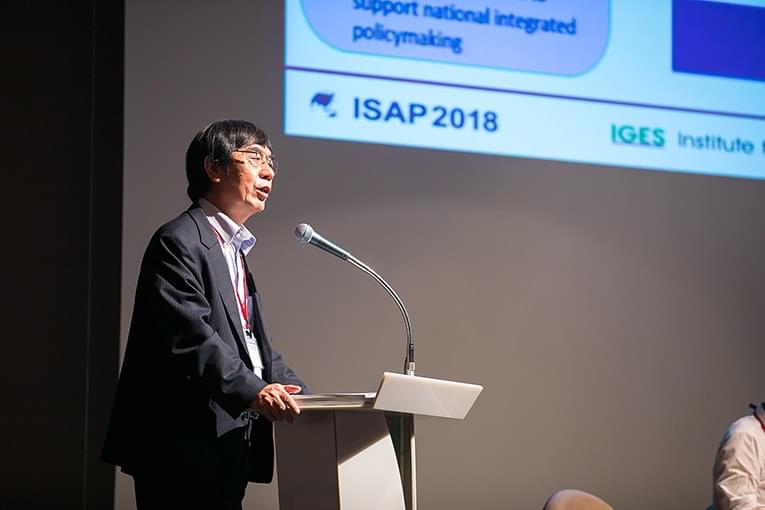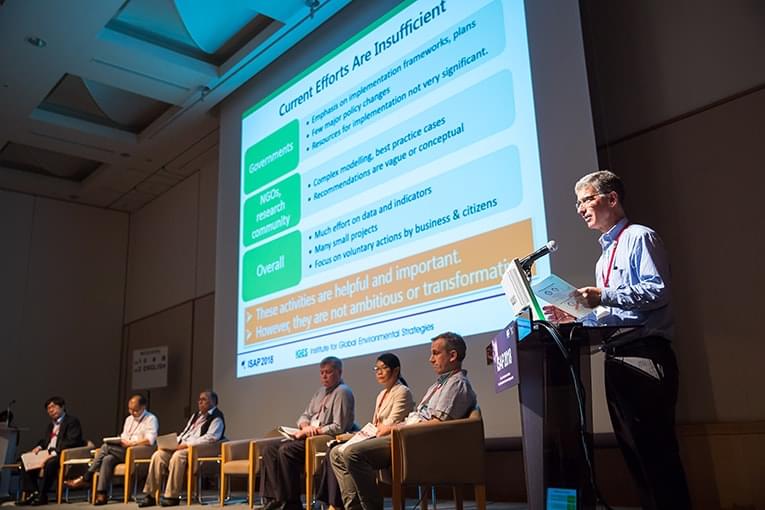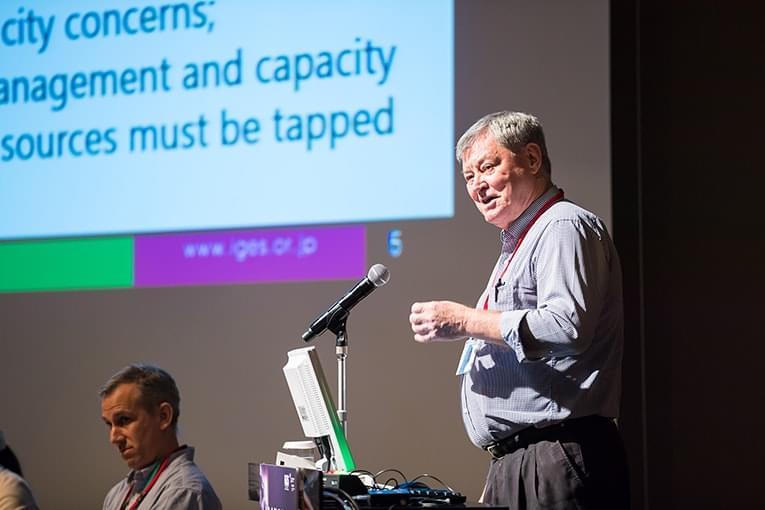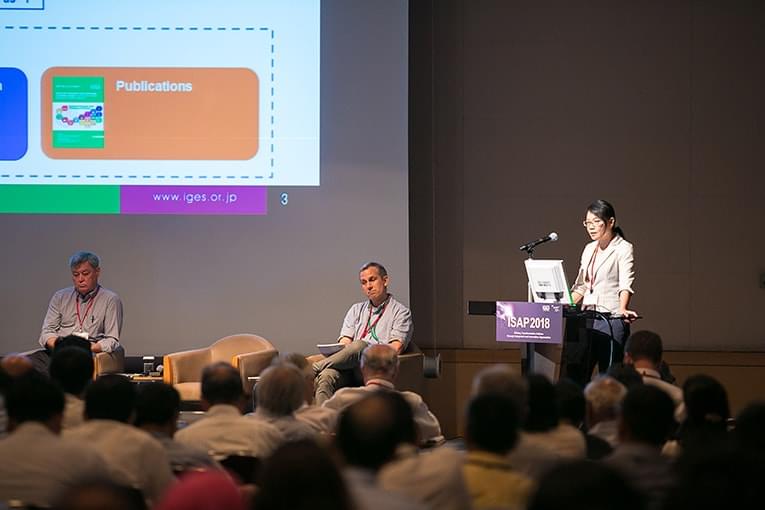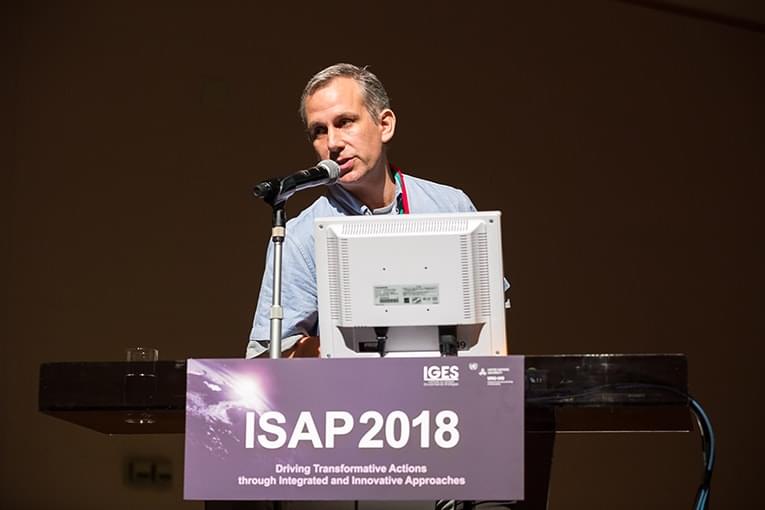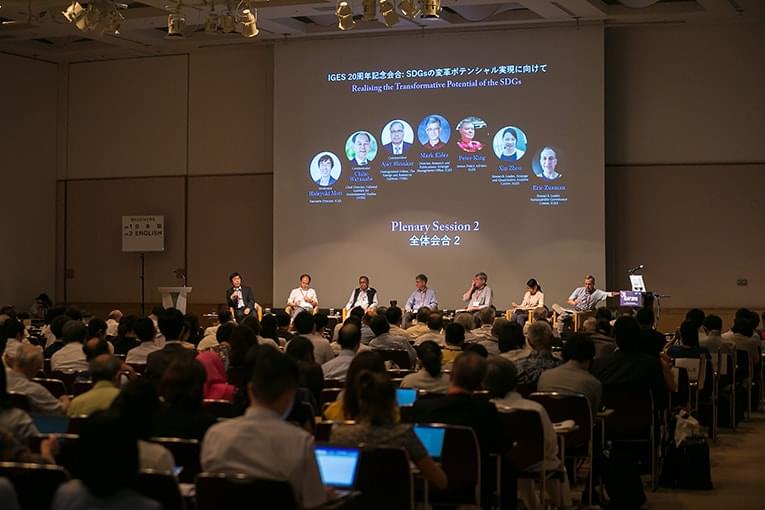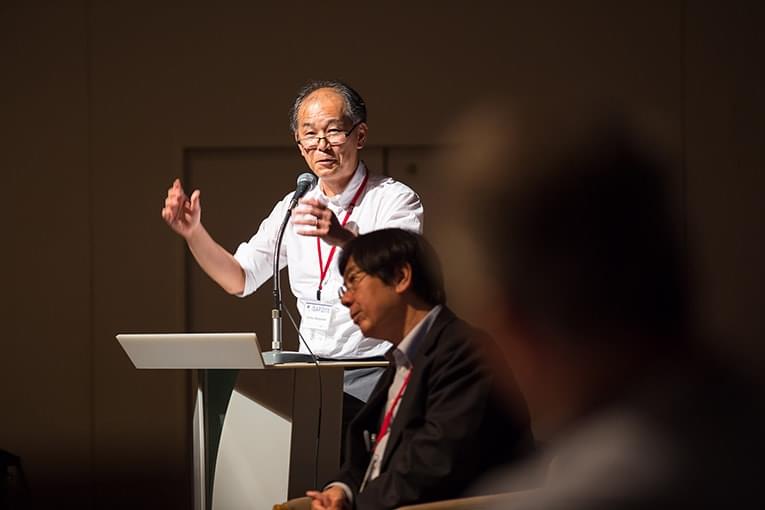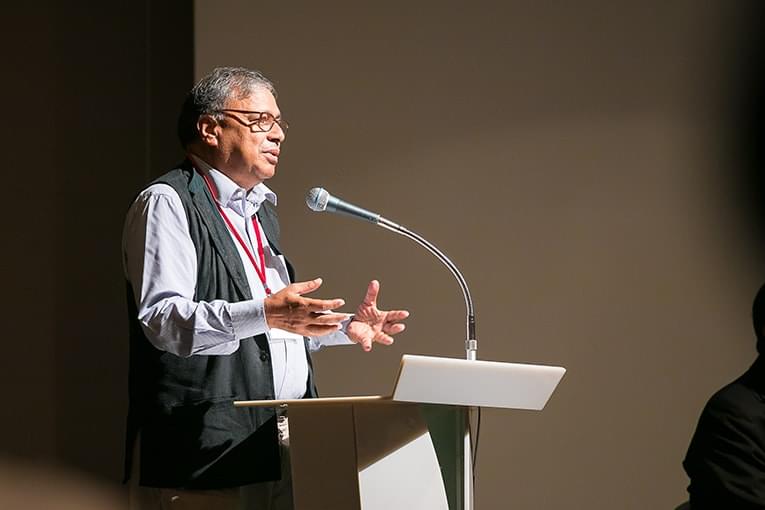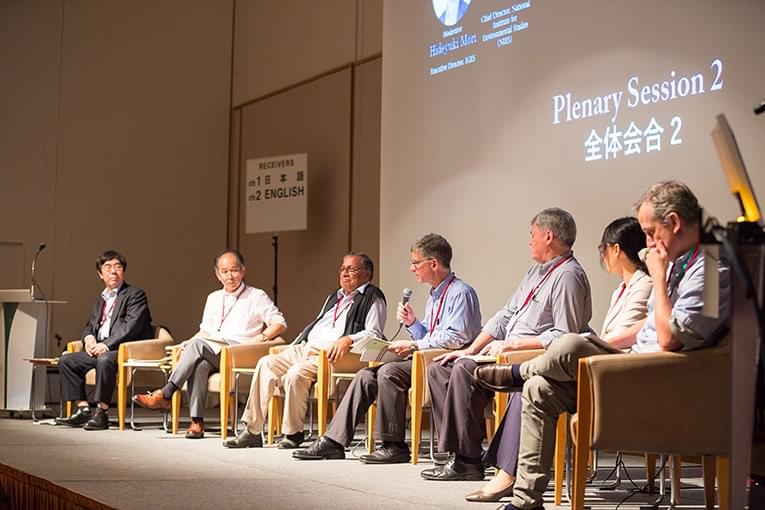This session will summarise the main messages of three new IGES reports. Realising the Transformative Potential of the SDGs aims to raise the level of ambition and encourage a greater global focus on how the transformative potential of the Goals could be achieved, moving beyond simply encouraging their implementation. Current efforts generally focus on data and indicators with less emphasis on action. Many targets are ambitious and transformative, but are diluted by the indicators. It is not necessary to delay concrete actions while waiting to decide all of the indicators or collect all of the data. Moreover, the SDGs are not new issues, and broad policy directions that can address multiple areas simultaneously are already available. This session will highlight some of these directions, as well as the complementary roles of national governments and the private sector in achieving the transformative potential of the SDGs, along with the important functions that technology and finance will play if the SDGs are to meet their intended objectives. The other two reports address integrated approaches to the SDGs, which are key to their transformative potential, but are difficult to implement. One report analyses the complex interlinkages among SDGs and presents a web tool to quantify and visualise them, while the other report explores how to strengthen the governance of integrated approaches in order to enhance their effectiveness.
Director, Research and Publications, Strategic Management Office, IGES

Mark Elder
Director, Research and Publications, Strategic Management Office, IGES
Mark Elder is Director of Research and Publications, Strategic Management Office at the Institute for Global Environmental Strategies (IGES) in Japan. He has led various research projects on environmental and sustainability governance issues including: sustainable development goals, Rio+20 institutional framework for sustainable development, transboundary air pollution, regional environmental cooperation in East Asia, economic integration, biofuels, and local governance. Before joining IGES in 2006, he was Assistant Professor of Political Economy and International Relations at Michigan State University. He received a Ph.D. in political science from the Department of Government, Harvard University. On SDGs, he coauthored a policy report on “Scoring the Sustainable Development Goals: Pathways for Asia and the Pacific,” and an article in the journal Sustainability on “An Optimistic Analysis of the Means of Implementation for Sustainable Development Goals: Thinking about Goals as Means”.
Senior Policy Advisor, IGES
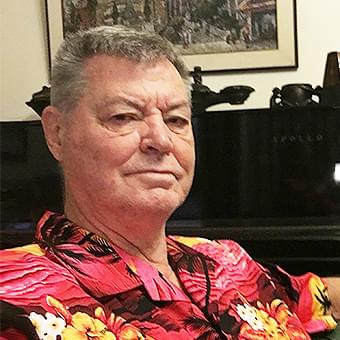
Peter King
Senior Policy Advisor, IGES
Peter King has been an avid environmentalist for more than 40 years. He started his career in the Soil Conservation Authority in the state of Victoria and became the Land Studies Coordinator in Victoria’s first Ministry for Conservation. He spent some time at the Environment and Policy Institute, East West Center in Hawaii and then set up his own environmental consulting company. In 1991, he started work with the Asian Developing Bank (ADB) as an Environment Specialist and established a sound reputation as ADB’s leading natural resources management (“green”) expert, with personal responsibility for over 50 loan and TA projects. In 1998, he was awarded a Doctor of Philosophy (Environmental Science) degree from Murdoch University in Perth.
In 2005, he took early retirement from ADB and is currently a Senior Policy Advisor for IGES , heads the Asian Environmental Compliance and Enforcement Network secretariat, is a member of the Climate Change Asia Coordination Group, and is Team Leader, Adaptation Project Preparation and Finance on the USAID Adapt Asia-Pacific project.
Research Leader, Strategic and Quantitative Analysis Centre, IGES
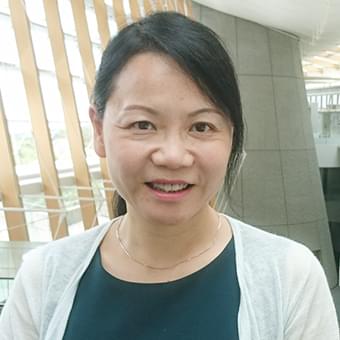
Xin Zhou
Research Leader, Strategic and Quantitative Analysis Centre, IGES
Xin Zhou is Research Leader of the Strategic and Quantitative Analysis Centre (QAC) at the Institute for Global Environmental Strategies (IGES). Currently, she is leading quantitative policy research in the areas of SDG interlinkages analysis and visualisation, green investment and green jobs assessment and water-energy nexus study in Ganges River. In recent years, she led a wide array of policy assessment works including the labour market implications of nationally determined contributions (NDC) in Indonesia, assessment of carbon pricing and border carbon adjustment on industrial competitiveness and carbon leakage in Japan, assessment of embodied emissions and international trade for Asian countries, assessment of the employment effects of environmental goods and services sectors in northeast Asian countries, and the development of the Japan 2050 Low Carbon Navigator, etc. She received Ph.D. in Environmental Studies from Nagoya University, Japan, in 2007. Before that, she had been working with the Policy Research Center for Environment and Economy (PRCEE), the Ministry of Environmental Protection, China, since 1994. As Director of Policy Research Division, she led many policy research supporting national policy-making on the environment. She received several national scientific achievement prizes for her academic and social contributions to the Chinese government.
Research Leader, Sustainability Governance Centre, IGES

Eric Zusman
Research Leader, Sustainability Governance Centre, IGES
Eric Zusman is a senior policy researcher/area leader at the Institute for Global Environmental Studies in Hayama, Japan. He holds a bachelors degree in Mandarin Chinese from Rutgers University, a dual Masters Degree in public policy and Asian studies from the University of Texas at Austin and a Ph.D. in political science from the University of California, Los Angeles. For much of the past decade he has worked on environmental issues in Asia. This has included publishing articles and book chapters on water scarcity, air pollution regulation, environmental law and state capacity in greater China. It has also included working with China’s Yellow River Conservancy Commission and the Chinese Research Academy on Environmental Science. He also held research assistantships with the Woodrow Wilson Center’s China Environment Forum as well as Taiwan’s Academia Sinica. In his current position, he is looking at the co-benefits of climate policies in developing Asia.
Chief Director, National Institute for Environmental Studies (NIES)
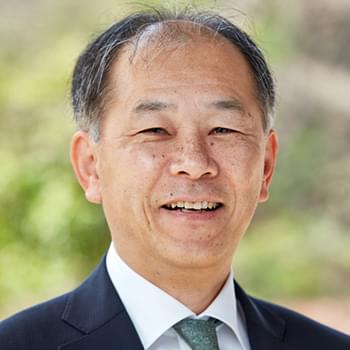
Commentator
Chiho Watanabe
Chief Director, National Institute for Environmental Studies (NIES)
Chiho Watanabe is Chief Director of the National Institute for Environmental Studies, National Institute for Environmental Studies (April, 2017), as well as Professor Emeritus of the University of Tokyo. His specialty fields are human ecology, environment and health, environmental toxicology. He holds a Doctor of Health Sciences (The University of Tokyo, 1991). His publications include "Sustainability challenges: Elucidating sustainability-health intersections" (co-edited, Current Opinion in Environmental Sustainability), "Human ecology" (co-edited by Asakura Shoten), "Science of toxicity" 2017, 25 Special Issue) etc. He has held positions including Vice Chairman of the Society of Human Ecology (2011-2017), and Chairman of the Japan Health Association (2017~).
Distinguished Fellow, The Energy and Resources Institute (TERI)
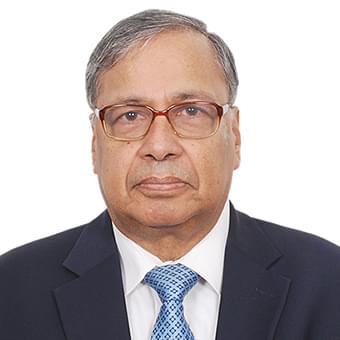
Commentator
Ajay Shankar
Distinguished Fellow, The Energy and Resources Institute (TERI)
Executive Director, IGES
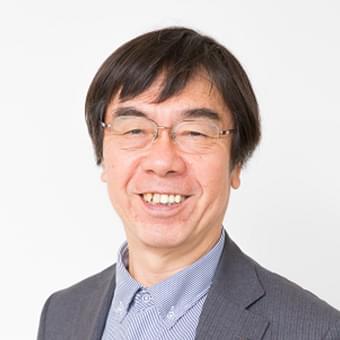
Moderator
Hideyuki Mori
Executive Director, IGES
Hideyuki Mori is a graduate of the School of Engineering, Kyoto University. He joined IGES in 2003. Prior to joining IGES, he served as Environment Specialist at the Asian Development Bank, Senior Environmental Coordinator of the United Nations High Commissioner of Refugees, Director of the Office of Research and Information at the Global Environment Issues Division of the Environment Agency of Japan (present Ministry of the Environment), and as Portfolio Manager of the Division of GEF at the United Nations Environment Programme. He was a professor at Keio University from 2008-2010. He has served as the Executive Director of IGES since 2010.
